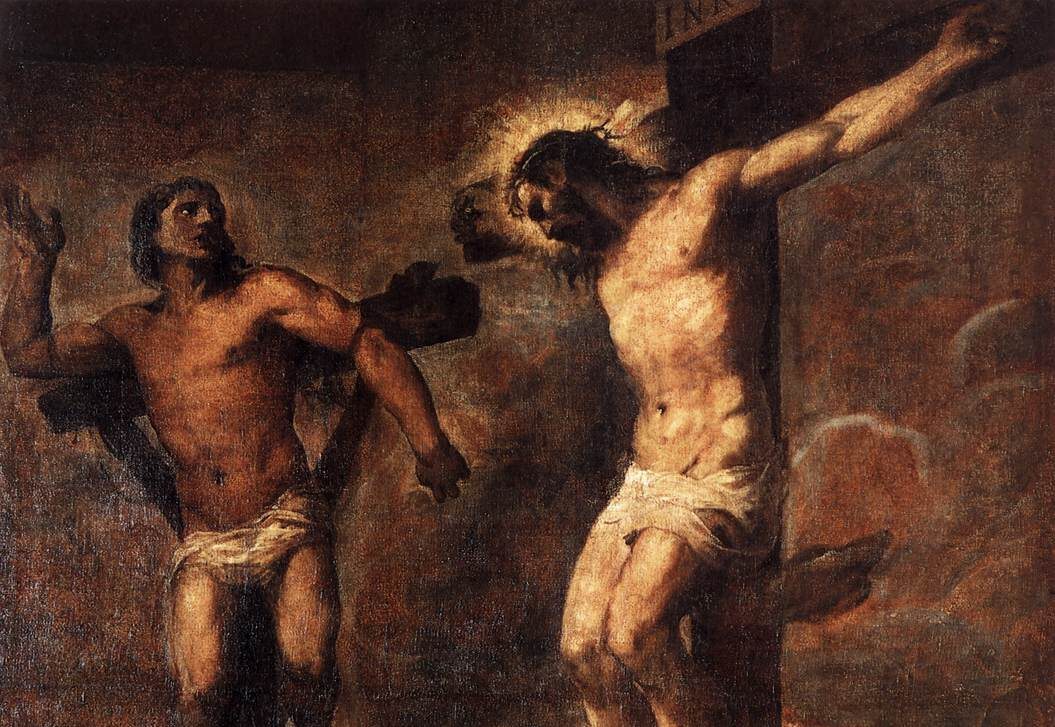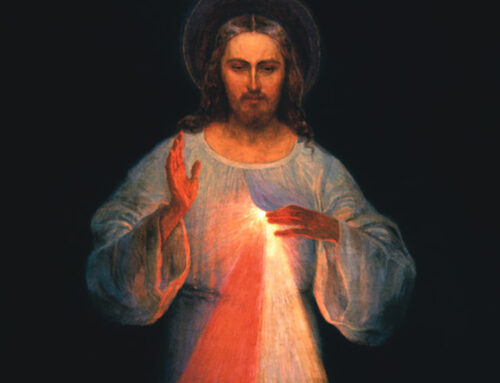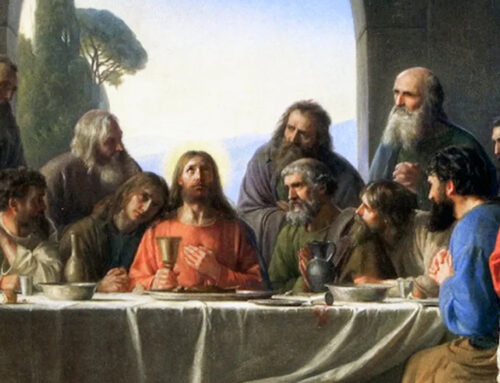I had dinner with some friends the other night who have five young children — four boys and one girl. I asked the oldest boy: “So, on an average day, how many times do you have to forgive your brothers? Maybe like seven times a day?”
He giggled hysterically and corrected me: “Noooo… a LOT more than THAT!”
So I asked him: “Ok, so how many times a day DO you have to forgive your brothers?”
At this, he scratched his head, thought for a moment, tallying everything up — and then said, with the profound wisdom only a child could reveal:
“Every time.”
How many times a day should we forgive? Every time.
There’s no number. No limit. No conditional statements necessary. Just…
Every time.
And that’s precisely what Jesus is getting at when he answers Peter: Not just seven times… but seventy-seven times — in fact! Every time.
We have a hard time with this radical simplicity. We think: How is this possible in a world where so much bad happens? Where people are able to hurt one another so viciously? Prone to use and manipulate one another so cruelly? Able to lie to one another, break one another down, bully each other into submission, treat one another like objects — how can forgiveness possibly happen every single time in such a broken world?
We may see Christ’s teaching as naive and childish even. As if he is downplaying how badly people can hurt one another.
But let me make one thing absolutely clear: Forgiveness is not a blandly passive “Hey, don’t worry about it, everything’s alright.” To forgive does not mean that you allow injustice to continue. Rather — forgiveness consists in saying: “Actually, what you did was not ok. Every time you did this or that, you hurt me. And it was wrong every time.
But even so, I freely choose not to hold your actions against you.
Why?
Because I have faith that you are more than your imperfection. That you are loved by God. He’s your judge, not me, and I have hope in His grace and healing in your life to become a saint.”
That sort of forgiveness is made possible only when we come to realize the true depths of our own need. Of our own brokenness. The reality is: We all sin and fall short. None of us can claim perfection. None of us is the spotless victim. Only Jesus is. Scripture tells us that the just man falls seven times a day. We begin each every Mass publicly acknowledging our sins. Before receiving our Lord in the Eucharist, we say: “Lord, I am NOT worthy to receive you under my roof.”
We all stand in total need of God’s grace. In the immortal words of GK Chesterton: “We’re all in the same boat, and we’re all seasick.” Each of us needs continual, ongoing, every-time forgiveness. We cannot earn holiness, and nobody is worth forgiving more than anyone else. Each one of us is completely at the Lord’s Mercy.
That’s where the merciless servant went bad in our parable today. He forgot that he was still seasick along with all the other passengers on this boat — so he began demanding what our gospel refers to as a “much smaller amount” his fellow sinner still owed him. He thought that once he was “forgiven” once, that he was over and above everyone else — that he could take the proud moral high ground, exacting harsh, merciless demands on those still in the boat.
In reality, when God offers us forgiveness, free of charge, we are given the freedom and space to rejoice in this central and expansive truth:
That our God loves all sinners!
Do you really believe that? St. Paul writes in his letter to the Romans: “One will hardly die for a righteous man—though perhaps for a good man one will dare even to die. But God shows his love for us in that while we were yet sinners Christ died for us.”
God doesn’t forgive pretty, nice, easy sins. He forgives our nastiest, most nagging, most habitual, most embarrassing, darkest sins.
Trusting this amazing truth gives us the courage to turn with compassion to our fellow sinner, and joyfully cry out with the words of our psalm:
The Lord “pardons all your iniquities,
heals all your ills,
redeems your life from destruction,
he crowns you with kindness and compassion!”
And what’s more, we can trust that the Lord is not at all preoccupied with our sins. Sometimes we seem to think that all God ever does is point out our mistakes and failings. Why do we think this? Maybe because that’s what we usually do with one another! We can become so intensely focused on all the many faults and failings of our family members, our friends, our co-workers, politicians, or personalities on the news… that we end up equating them with their imperfections.
But God doesn’t do that to anybody.
He’s not interested in our sin. He’s interested in us. And insofar as He is interested in us and loves us, He absolutely means to deal with our sin — to clean up our mess and put an end to it, once and for all.
Why?
Because sin always holds us back from being who we were created to be. God wants us to be happy, and sin actually makes us miserable. Believe it or not, when the Lord looks at you, He does not see a pile of sins, mistakes, and imperfections. He sees a beloved son or a daughter that He’s willing to do anything in order to save. He sees His masterpiece that He intends to fully restore to its proper glory. He sees someone that He would absolutely forgive — not only seven times — but each and every time if you asked Him.
That’s how we must learn to look at our neighbor who sins against us — with this same divine perspective. By the grace of the Holy Spirit, we can learn to gaze upon our fellow sinner with love and mercy. We can resist the urge to flatten people into incarnations of whatever their particular sins happen to be.
I’ll end with this:
In just a few minutes, I’ll stand at this altar, bending over the chalice, and Christ Himself will say over that cup of wine: “This is My Blood, the Blood of the new and eternal covenant which will be poured out for you and for many… for what? For the forgiveness of sins.
This is the Blood that forgives you. This is the Blood that forgives me. When you come and receive the Eucharistic Host, you will receive this forgiving Blood into yourself. The Blood which seeks to reconcile and forgive the world will be in YOUR veins.
If that’s true — if forgiveness Himself courses through your body — then how can you give anything BUT forgiveness. How can you continue to hug anger and wrath? How can you receive the Eucharist with one hand and choke your neighbor with the other? How can you withhold mercy from your fellow sinner? You have been united with Jesus in the Eucharist, and by extension, you have been united with the entire Body of Christ — saints and sinners alike.
We can forgive because He has forgiven us.




